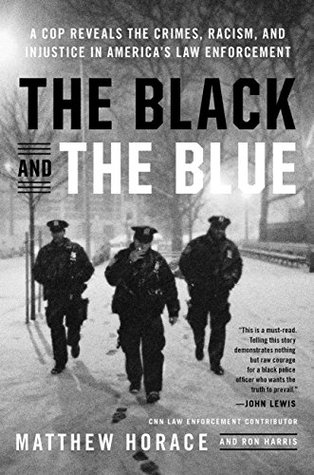 “Even as a federal agent, I have been on surveillance or supporting an operation and have had an officer approach me and say that the neighbors called about a “suspicious” vehicle, which meant it was a black guy driving a car. I’ve been the man in that suspicious vehicle.”
“Even as a federal agent, I have been on surveillance or supporting an operation and have had an officer approach me and say that the neighbors called about a “suspicious” vehicle, which meant it was a black guy driving a car. I’ve been the man in that suspicious vehicle.”
Matthew Horace worked as a cop at the federal, state, and local level for 28 years, and he is plenty sick of the “toxic brotherhood.” The quote above refers to an incident that occurred in Mill Creek, a (very white) suburb outside Seattle, Washington where I live, but it’s not just here; it’s everywhere in the US. Specifically, he tells us about cities where some of the most notorious cop violence has created resistance such as New Orleans, Chicago, Baltimore, and Ferguson.
There are essays provided by police chiefs from some of these places as well as from Kathleen O’Toole, who was chief here in Seattle; O’Toole’s prose reek of electioneering, the sort of style that speaks for itself. Many of these contributors contradict Horace’s own assertion that the problem is endemic, and is absolutely not a case of a few bad apples. More than one of these essays hold the fascination I’d feel if forced to watch a rattlesnake before it strikes; the sanctimony, the grandiose claims of justice supposedly served. The most interesting of them all is from an African-American police chief in Chicago, whose personal stories of her family members having been abused—including her sons—stand diametrically opposed to what she does for a living, and yet she maintains her tightrope walk, determined to make a difference where only the smallest, if any, seems likely.
By now I should have thanked Net Galley and Hachette Books for the review copy, which I received free and early. This excellent book is available to the public Tuesday, August 7, 2018.
There has been a flurry of books published about this subject since it became national news. More than anything, the internet and cellular phones have stripped the gatekeeping capacity of the major news outlets; cops that were able to beat and even kill people and lie about it later are being outed left and right. Even I, who am an old lefty and have never really believed cops were there to protect ordinary people, am shocked by much of what’s been revealed. I wondered, as I began reading, whether Horace could add to what’s already been said and shown. What could he add to the body of information provided by Ta-Nehisi Coates, Angela Davis, and Matt Taibbi? (Many years ago, Norm Stamper, former Seattle police chief, also wrote an expose that included a chapter on why cops beat Black men.)
As it happens, Horace has a lot of information that I hadn’t read, and it isn’t just a matter of fine detail. For example, who knew that in New Orleans, cops were not merely accepting graft, but actively robbing Black-owned businesses, guns drawn, and making off with their cash and other valuables? It’s the sort of thing that lives in your head for a long time after you read it; but then again, it should be.
The sourcing is impeccable.
Those with an interest in Black Lives Matter, in civil rights in general, or with an interest in race issues within the so-called criminal justice system in America should get this book, for full price if necessary, and read it. Read the whole thing. So much of our future depends on how we respond.

Pingback: Best Nonfiction 2018 | Seattle Book Mama